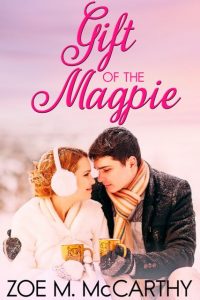You want to write humor into your story, but it’s funny only in your head. Keep trying, because all genres benefit from some humor.
Sometimes humor isn’t well done and poor reviews are valid. But other times, the problem is some readers don’t have funny bones. Ignore their reviews. However, we must continue to hone our humor. I’ll share what I’ve observed.
Humor: What Works and What Drags
 1. Every moment doesn’t have to be funny. While reading my favorite humorous author aloud to my husband, I noticed the funny character was beginning to repeat the same types of humorous actions, dialogue, and internal thoughts. I no longer found them as funny as I did at first. I stopped experiencing the element of surprise. Her techniques are good, but she overused them in the first half of the book to the harm of the second half.
1. Every moment doesn’t have to be funny. While reading my favorite humorous author aloud to my husband, I noticed the funny character was beginning to repeat the same types of humorous actions, dialogue, and internal thoughts. I no longer found them as funny as I did at first. I stopped experiencing the element of surprise. Her techniques are good, but she overused them in the first half of the book to the harm of the second half.
2. Forced humor never works well. If the humor is too much like slapstick, fewer readers will like it. If you’re determined to make a situation funny, it probably won’t be.
3. Try subtle humor. Subtle humor goes a long way for many readers. For example, take an introverted hero overburdened with responsibilities. Use small actions that he does while alone that produce smiles and are endearing. He’s determined to meet his obligations. What he says and does in public aren’t strange to him but are to the heroine and others. Then occasionally, he unwittingly becomes the straight man for a family member to exhibit her dry humor.
4. Keep humorous activities original with all the elements of a serious scene. The humorous scenes should have conflict and engaging dialogue. For example, in my novel, Gift of the Magpie, Amanda’s fingers and toes become almost frostbitten while she and Cam build an igloo. He makes her come to his house where he searches the Internet on his phone for how to thaw appendages. To Amanda’s chagrin, the exercises require large leg-swinging and arm-revolving exercises to force blood to her fingers and toes. She demands to see his phone to make sure he’s not having her perform unnecessary, embarrassing motions. Her running commentary on the exercises not working and her preference to put her frozen feet and hands on Cam’s bare back and sides flips the situation to Cam’s discomfort and his voiced opinions.
5. Banter must be lively but not inane. Go for clever remarks and zingers. Don’t do this:
Brad pinched Gilda’s arm. “Behave.
“Ouch, that hurts.” She rubbed her arm.
“I meant it to.”
“Maybe I’ll pinch you.”
“Better not.”
Here’s banter from my Book Calculated Risk, after Cisney has shown actuary Nick how far up the tub of popcorn he should stop eating and give the bucket to her. We start with Nick’s comment.
“The movie hasn’t started yet, you don’t have to whisper.”
“In movies, my family never talked above a whisper, if at all, or Daddy wouldn’t bring us again for a long time.” Her beautiful eyes widened. “You don’t talk during the movie, do you?”
“No.” He held up the popcorn container, glad they agreed on one thing. “You do know the bucket is somewhat cone-shaped and half the popcorn is about here.” He moved his finger up the bucket from where she’d drawn her line.
“Shame on you, Risk Man. You didn’t take into consideration that they were chintzy on popcorn. The kernels reach a half-inch short of the top. And you didn’t take into account that I’m smaller than you and don’t eat as much.”
He chuckled. Risk Man?
She put her finger to her puckered lips. “Shh.”
Humor in novels – what works and what drags. Click to tweet.
What tip can you add in writing humor?
Amanda Larrowe’s lack of trust sabotages her relationships. The English teacher and award-winning author of middle-grade adventure books for boys has shut off communication with friends and family to meet her January 2 book deadline. Now, in the deepest snow accumulation Richmond, Virginia has experienced in years, Camden Lancaster moves in across the street. After ten years, her heart still smarts from the humiliating aftermath of their perfect high school Valentine’s Day date. He may have transformed into a handsome, amiable man, but his likeability doesn’t instill trust in Amanda’s heart. When Cam doesn’t recognize her on their first two encounters, she thinks it’s safe to be his fair-weather neighbor. Boy is she wrong.









This is a good tutorial, Zoe. I haven’t used a lot of humor in my books and have been called on it a couple of times. My themes are fairly weighty, but I think I could leaven them with a sprinkling of humor. I’m fairly funny in person, but my humor is that dry New England wit and also a lot of parody and satire, which doesn’t go over well everywhere. I agree with some of your “bad” examples. Slapstick only worked in a simpler time. I’ve been watching a lot of “Cheers” reruns, mostly because there is nothing new EVEN ON PBS, and I’m still amazed at the repartee between the iconic Sam and Diane. He thinks he’s “got” her and she zings him right back, or vice versa. It’s been compared to a modern-day “Taming Of the Shrew.” If I could do that, sigh…But I’ll do something else.
Thanks for the post.
Kathy Bailey
Kathy, funny you should mention zinging. I’m doing a workshop in which I’m sharing some subjects, including writing zingers, from my book coming out later this year, Tailor Your Fiction Manuscript in 30 Days. I have to watch out for being too snide in my story humor. It can make a character more unlikeable than funny. Thanks for commenting.
Humor for me is so important in any genre. But you are right: it must be handled correctly. Great post!
Mary, I like how writers follow a gruesome scene in a thriller with a scene containing humor to give the reader a break to catch his breath and slow his heart.
Zoe, I’m with you in that humor allows us an “ah” moment to chill out a moment. I like the cartoon character who is always after the acorn, but sometimes his attempts go on a bit longer than I would like. Hopefully, no one would say that about my writing.
Sheri, that character always after the acorn is one of those cases, I think, that loses the surprise for the viewer after a while.
Great post, Zoe. You are so right that humor can have a fitting place in every genre. I love reading and writing suspense, and when I find moments that make me smile or laugh, it draws me closer to the story and/or to a certain character. Thanks again for the post.
Larry, I think you’re right about getting closer to a character when they make you smile. I fell in love with a blind secondary character and often use him as an example when I’m talking about secondary characters. His wit made me smile.
Cute excerpt, Zoe. Lol. It tickled my funnybone. I add humor to all my stories, and love to find it in the romance novels I read.
Hi Laurean, I also enjoy books with humor, but I also realized I love the element of tenderness among all the conflicts. So, my books in which opposites distract contain humor and tenderness.
Just my humble opinion, but I like to copy Michael Landon’s method in “Little House On The Prairie.” You laugh one minute, cry the next. But he ALWAYS added humor to even the most solem, sad show.
I believe that keeping the reader on an emotional roller coaster, keeps her/him glued to the story. To quote Author and writing coach, Dr. John Yeoman, ” A brishk or upbeat scene should always be followed by a trough of reflection or tranquility. And vice-versa. It works. Just as in the beating of a heart. Or in the rhythms of life.”
I wrote this quote down and keep it in front me me as I work.
Laurean, you hit on an effective way to use humor. After particularly scary, intense scenes or very sad scenes writers will have a humorous scene to give the reader a chance to collect himself. I noticed this when I watched crime series on TV. After a gruesome scene, the next scene would have the detectives back in the office bantering with each other. Some writers will have a slow paced scene after a fast, heart pumping scene for the same reason.